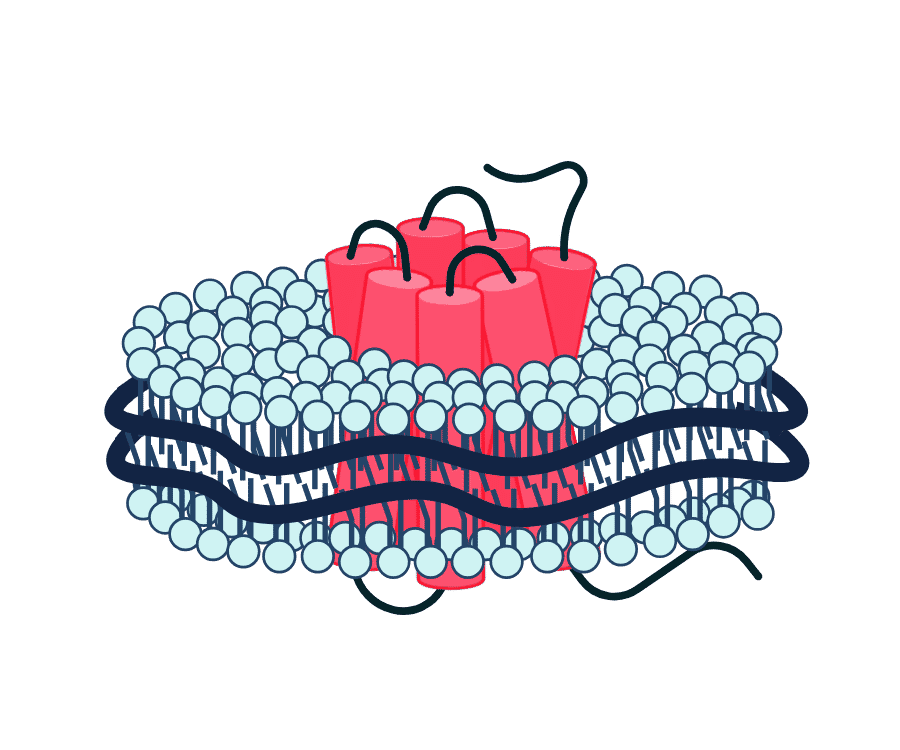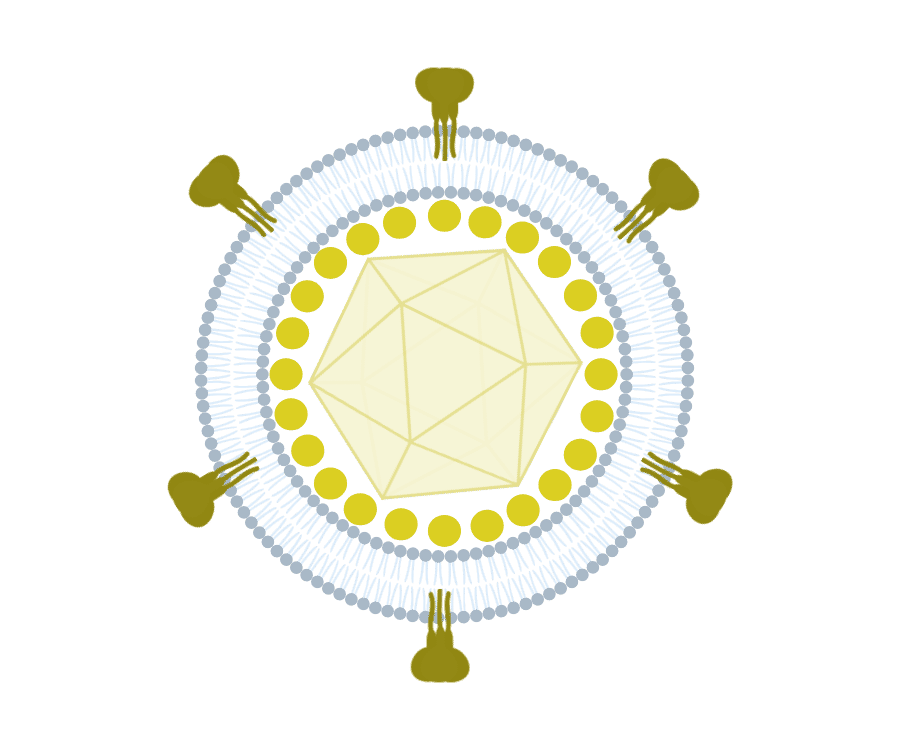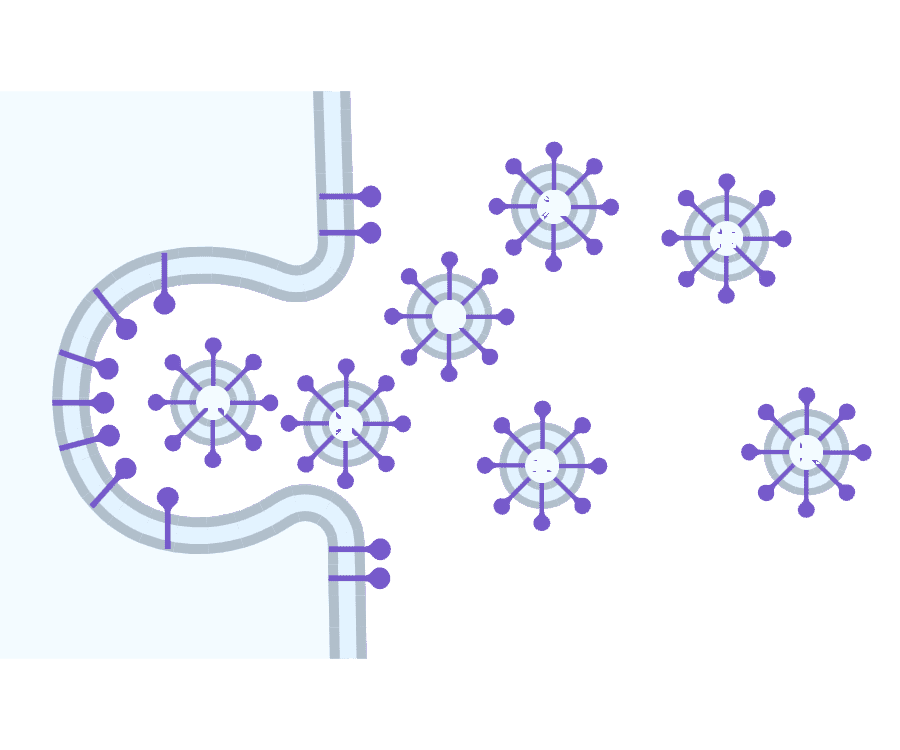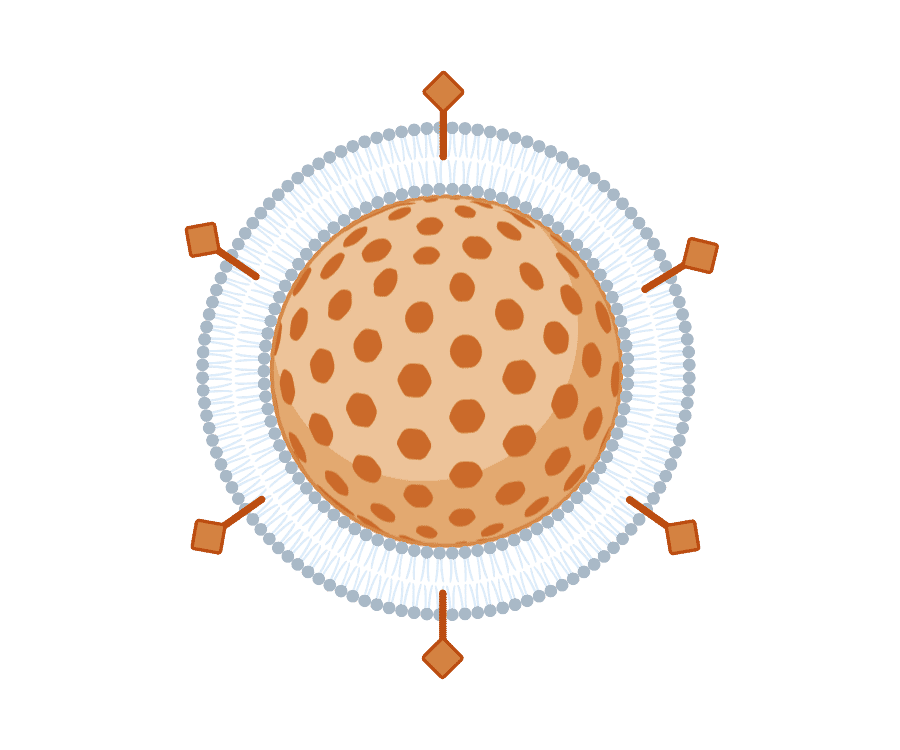Purified proteins and peptides are important tools in elucidating the function and biological roles of these essential cellular components. Native and recombinant proteins can be used in a wide range of applications, including:
We offer over 9,000 high quality native and recombinant proteins and peptides from mammalian, insect, yeast, and bacterial expression systems, including tools for investigating transmembrane proteins.
We offer a variety of formats of transmembrane proteins, which are historically challenging to manipulate due to their tendency to aggregate and the necessity to maintain their native 3D structure. All of the systems below allow the membrane protein to remain in a lipid bilayer so that they retain their natural conformation and biological activity, while being accessible for in vitro experiments, drug discovery and biologics development. Learn more about transmembrane proteins here.

Nanodiscs hold transmembrane proteins within a phospholipid bilayer, stabilized by a polymer belt. This mimics the natural lipid environment, allowing membrane proteins to maintain their native conformation and activity. Learn more about nanodiscs here.

VLPs self-assemble from structural viral proteins, but lack a viral genome and are non-infectious. VLPs incorporate membrane proteins into their membranes as they bud from the cell.

Exosomes are naturally secreted by cells and endogenously contain a variety of protein and RNA molecules. Overexpressed proteins localized to the cell membrane can be secreted in exosomes, collected and purified.

MNPs comprise a synthetic nanoparticle core coated with a layer of natural cell membrane. Cell membrane containing the target protein is fragmented and isolated prior to nanoparticle coating.
Our recombinant proteins are expressed in several different host systems. Selecting the right expression system for your application can be critical to the success of your experiment. The table below outlines the features of each of our expression systems, from bacteria to human cells.
| Human (HEK293) | Mammalian (CHO) | Insect (Sf9) | Yeast | E. coli | |
|---|---|---|---|---|---|
| Post-translational modifications | Full | Nearly full | Partial | Partial | None |
| Protein folding | Optimal | Excellent | Good | Partial | Poor |
| Quantity of protein produced | Low | Higher than human | Moderate | Moderate | High |
| Scalability | Poor | Moderate | Excellent | Excellent | Excellent |
| Bioactivity | Native | High | Partial | Partial | Poor |
Journal of Biological Chemistry
Mechanism and regulation of cargo entry into the Commander endosomal recycling pathway